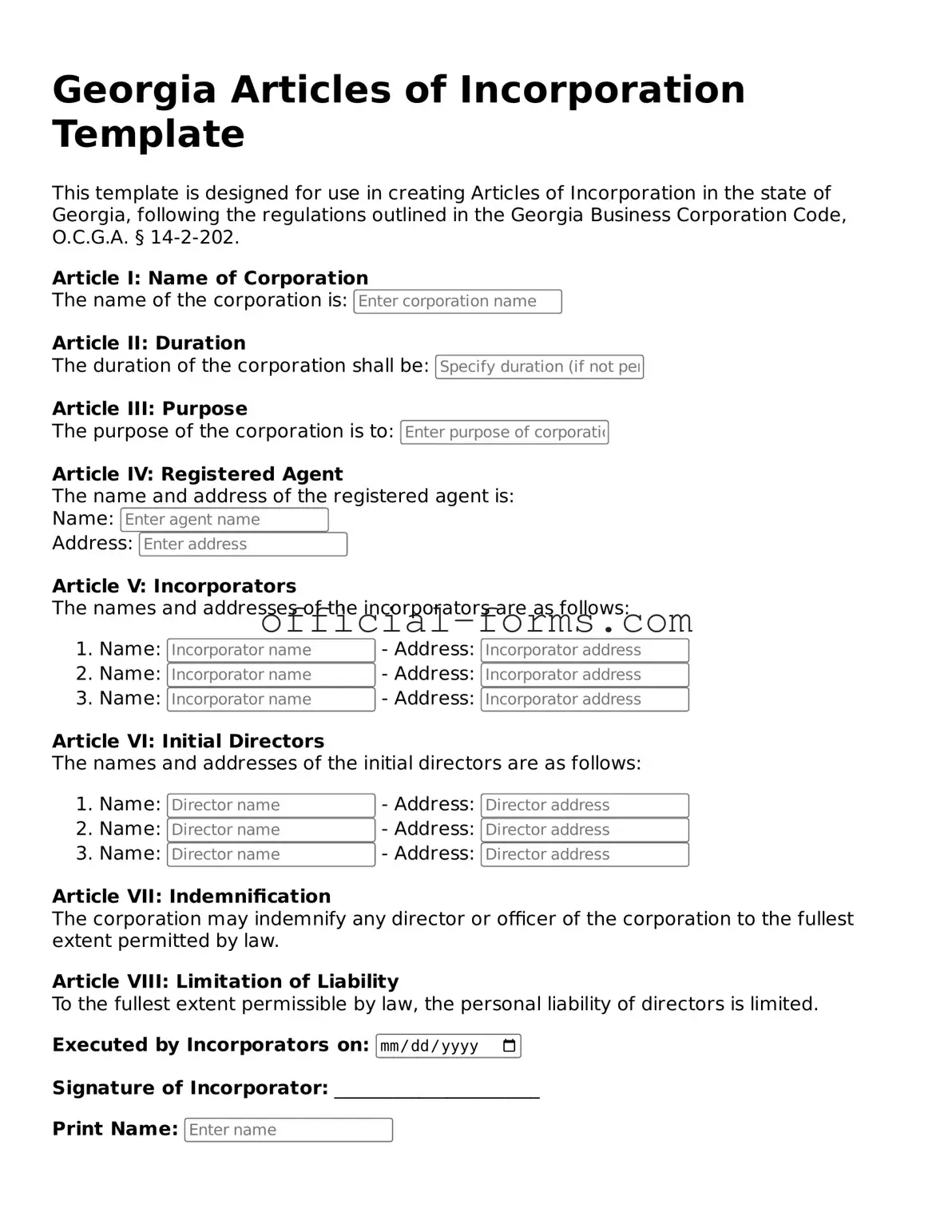Official Georgia Articles of Incorporation Document
The Georgia Articles of Incorporation form is a legal document required to establish a corporation in the state of Georgia. This form outlines essential information about the corporation, including its name, purpose, and registered agent. Completing this document accurately is crucial for compliance with state regulations and for ensuring the corporation's legal standing.
Open My Articles of Incorporation Now

Official Georgia Articles of Incorporation Document
Open My Articles of Incorporation Now
Don’t leave your form incomplete
Finish Articles of Incorporation online quickly from start to download.
Open My Articles of Incorporation Now
or
➤ PDF
